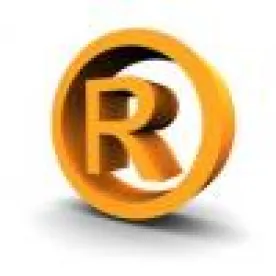It is no secret that the competitive edge of U.S.-based manufacturers is often predicated, at least in large part, on technological innovation and the patents that protect them. The broader the patents, the better. Usually the only significant obstacle faced by manufacturers trying to obtain broad patent rights was ensuring that their patents were still narrow enough to be new and non-obvious in light of the known technologies in the industry. Most manufactures are not used to considering whether their innovations are not eligible for patent protection in the first place. After all, in order to be patent eligible, an invention need only be drawn to a “new and useful process, machine, manufacture, or composition of matter, or any new and useful improvement thereof.” Since the statute explicitly calls out “manufactures” as eligible for patenting, manufacturers might be forgiven for believing that their patents would easily satisfy this standard. Not so, says the Federal Circuit.
In recent years, the Supreme Court has reinvigorated patent eligibility as a critically important defense in patent litigation. Putting a judicial gloss on Congress’s statute, the Supreme Court has held that patents also cannot claim “laws of nature, natural phenomena, and abstract ideas.” Allowing patents on such ideas would run the risk “tying up” the basic tools of scientific research. Frequently, this exception to patent eligibility comes into play with patents drawn to software or biological inventions. However, with a recent two-to-one decision of the Federal Circuit, the message is clear: manufacturers must also be cautious.
In this recent opinion, the Court found ineligible, and therefore invalid, the patent claims of American Axle & Manufacturing, Inc., which were directed automobile driveshafts designed to attenuate vibrations. While it was known to use a liner to dampen driveshaft vibration, American Axle’s patent disclosed a method of manufacturing a driveshaft containing a liner “designed such that its frequencies attenuate two modes of vibration simultaneously.” Its patent application disclosed some concrete designs that achieved this result. However, the claims of its patent were not limited to these concrete examples, but rather purported to claim all driveshafts with liners achieving such a two-mode dampening of vibration. This was the problem.
Citing a mid-19th Century decision regarding Samuel Morse’s patent on the telegraph, the Federal Circuit observed that a “patent is not [valid] for an effect, or the result of a certain process, as that would prohibit all other persons from making the same thing by any means whatsoever.” Instead, it is important for a manufacturer to ensure that its claims are directed to the concrete solutions that were discovered for a problem, not just the desired results. American Axle’s patent claims, however, were abstractly directed to an application of a natural law (Hooke’s law) to achieve a desirable result, and focused simply on “the concept of achieving that result, by whatever structures or steps happen to work.” This led to American Axle’s patent being invalidated by summary judgment.
The competitive advantage conferred by intellectual property quickly evaporates if a court finds its patents invalid. But manufacturers and their attorneys can learn from American Axle’s misfortune. American Axle had developed concrete ways of achieving two-mode vibration dampening. A patent claim directed to those specific embodiments would almost certainly meet the requirements for eligibility. However, American Axle succumbed to the familiar temptation to claim its invention functionally to ensure that its claims were as broad as possible. In this instance, that strategy failed. Instead, a manufacturer and its attorney must strike the right balance between the concrete and the functional when drafting patent claims.



 />i
/>i

